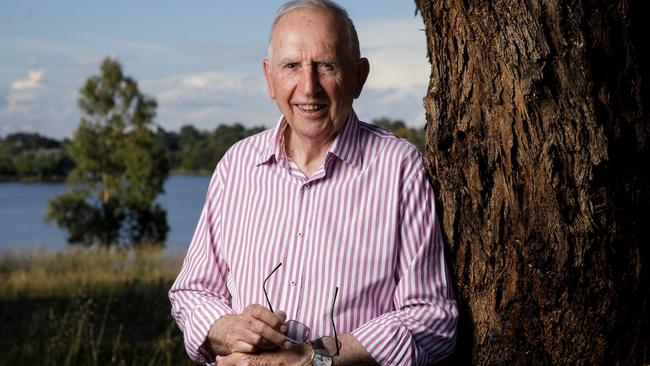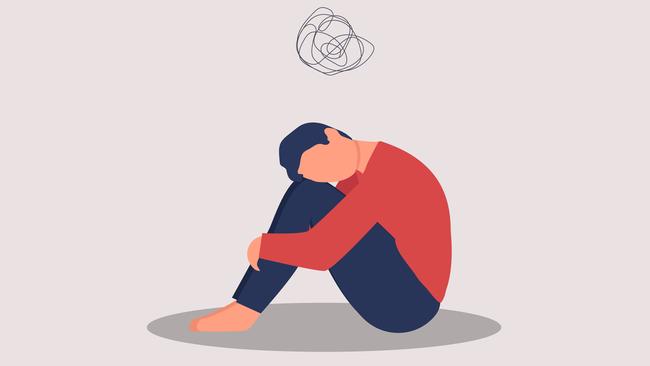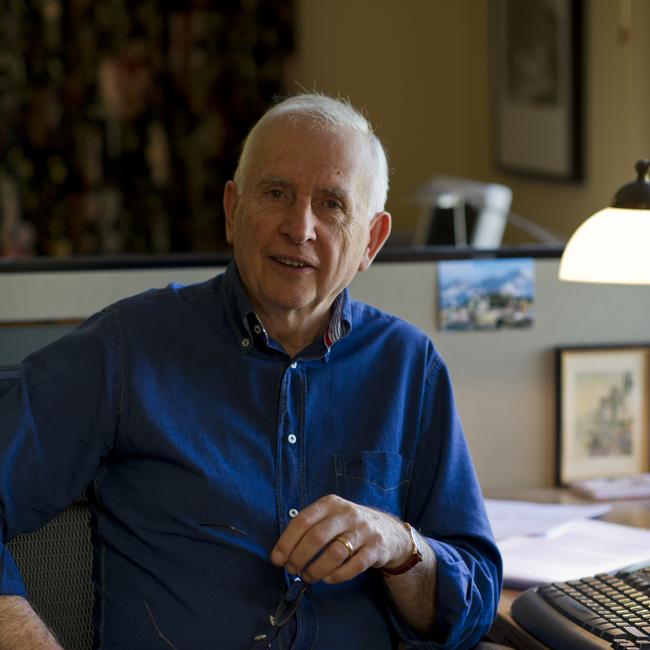Hugh Mackay: Why we need to stop using ‘I’m busy’ as an excuse to not connect
Australia has a new, number-one public health issue and it’s being experienced in epidemic proportions like never before.

Lifestyle
Don't miss out on the headlines from Lifestyle. Followed categories will be added to My News.
Whenever we talk about human attitudes and behaviour – the way we think, the way we feel, the things we do, the way we respond to each other – we need to remind ourselves that we humans belong to a social species.
We’re herd animals. Communitarians by nature. Hopeless in isolation. Hopeless. Can’t function. Can’t flourish. We need each other. We need families, neighbourhoods, friendship circles, work colleagues, choirs, book clubs, sporting teams, groups and communities – “herds” of all kinds – to nurture and sustain us, and give us that all-important sense of belonging that is so fundamental to the mental and emotional health of members of a social species.
Our households have been gradually shrinking for a hundred years. In that time, Australia’s population has increased roughly fivefold while the number of dwellings has increased roughly tenfold, so we’ve been creating households at twice the rate we’ve been growing the population. In other words, we’ve been shrinking our households.
The average Australian household now comprises just 2.5 people – a national figure that would be even lower were it not boosted by Sydney, where the average is 2.8 persons per household.

Let’s look at that another way: nationally, one in every four households now contains just one person. You didn’t grow up in a society like that, and neither did any of our forebears.
Not everyone who lives alone is lonely. And, conversely, not everyone who is lonely lives alone.
But a society in which every fourth household contains just one person is a society living with a heightened risk of loneliness on a massive scale.
Our high rate of relationship breakdown is a factor in household shrinkage, but it’s also a big contributor to social fragmentation more generally.
When a couple splits, a two-person household may well become two single-person households, at least for a while.
I’d add the falling birthrate to my list of disrupters. But let me stress that I am not in favour of increasing the birthrate.
There are already far too many people on this planet for the resources available to sustain them; if Australia wants to increase its population significantly, immigration rather than an increased birthrate is the way to go.
I am simply observing the contribution a low birth rate has made to our becoming a very different kind of society from the one many of us – and most of our parents and grandparents – were born into.
At around 1.6 babies per woman, the birthrate is way below the replacement rate of 2.1 babies per woman. It will probably fall further: many of the countries of Western Europe have birthrates lower than ours.

If you happen to be a post-war baby boomer reading this, you probably know that when you were born, the birthrate was around 3.6 babies per woman.
But why include the falling birthrate on the list of contributors to social fragmentation? Simply because children have traditionally played the role of social lubricant in local neighbourhoods and communities.
We’re finding ways of compensating, of course – notably through pet ownership. There are now more pets than people in Australia: 26 million of us and 28 million of them.
Also on this list: the sharp decline in religious faith and practice.
The loosening attachment to organised religion over the past 50 years has had a huge impact on the character of our society – both positive and negative.
When loneliness, anxiety and depression loom as public health issues, churchgoers appear to enjoy a protective advantage over non-churchgoers.
Next up: our increasing mobility, just like Americans, Australians move house, on average, once every six years. Research suggests about half of us don’t trust our neighbours, or that we don’t feel as if we could call on our neighbours in a crisis. That’s a gloomy sign of the problem of social fragmentation.
When it comes to social trends that reflect a changing way of life, we can’t overlook our relentless busyness. Have you noticed how proud we all are of being busy, as though there’s some virtue in it?
One reason is that we actually are busier than ever, if you look at the hours we work. (So much for the promise of the digital revolution that was going to usher in the Golden Age of Leisure.)
Thanks to our computers and smartphones, many of us feel we are never actually away from work – partly because “the boss can always reach me”, and partly because we too easily become addicted to the messages that keep pouring in, whether we’re officially at work or not.
Another reason is that busyness is a great hiding place if you’re looking for a socially respectable way of avoiding difficult or demanding social interactions. “The neighbours are having drinks on Friday night? Sorry – too busy.” “Don’t disturb Daddy – he’s busy.”
A sane person would regard excessive busyness as a health hazard, not only because it tends to increase our personal levels of stress and anxiety but – even more importantly – because it can so easily serve as a barrier to social cohesion.
We might try to justify our busyness as a sign of the great contribution we are making to the smooth running of the economic machine, but we might have overlooked our obligation to make a similarly “great” contribution to the smooth running of the social machine – the neighbourhood, in particular.
Being too busy to listen to people who need the support of a sympathetic ear; being too busy
to stop for a chat with a needy neighbour or work colleague; being too busy to engage with the concerns of our own children … what does this say about our priorities?
Beware of busyness: it’s the enemy of social cohesion. And therefore, for members of a social species, it’s the enemy of mental health, too.

Perhaps the IT revolution should have been top of our list. What a disrupter it has been! On the one hand it has promised to make us more highly connected – to each other and to all the world’s store of information – than we have ever been. And it has delivered on that promise brilliantly. No question.
On the other hand, it has made it easier than ever in history for us to stay apart from each other and to settle for fewer of those full-on, face-to-face encounters that not only enrich our social connections but also make a huge contribution to our wellbeing – even to our sanity.
Whether we’re talking about email or SMS texting, access to the internet via search engines such as Google, or any of the social media platforms that continue to proliferate, the digital revolution has utterly transformed the way most of us live, work, socialise, gossip and inform (and misinform) ourselves.
Increasingly, we use the internet for news, for entertainment, and for something that feels like social interaction but isn’t.
The crucial ingredient in human interaction is eye contact. If you doubt it, think about how awkward it feels if you’re trying to have a conversation with someone who refuses to make eye contact with you.
Why do you think the heaviest users of social media (young adults aged 18 to 25) also report the highest levels of loneliness?
It’s because they are lacking sufficient true social connection; they are lacking sufficient eye contact; they are missing too much of the richness and subtlety of face-to-face interaction … connected but lonely.
Social isolation has become our number-one public health issue, and we are now experiencing loneliness, anxiety and depression in epidemic proportions.
This isolation erodes our sense of solidarity, community and connectedness, and that sets the scene for rising levels of loneliness. When a herd animal is cut off from the herd – or even when it feels itself cut off, excluded, ignored, underappreciated – the consequences can be dire. ■
More Coverage
Originally published as Hugh Mackay: Why we need to stop using ‘I’m busy’ as an excuse to not connect




